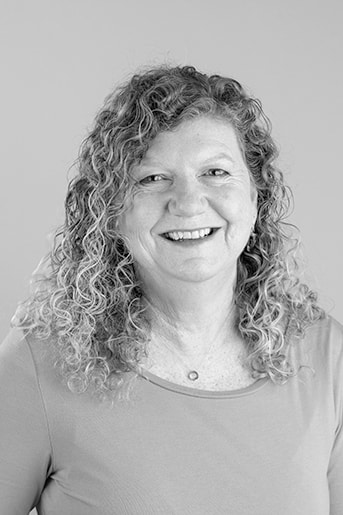This week, people all over the world have been honouring Sarah Auffret by collecting litter in their communities, as part of AECO’s fourth annual Cleanup for Sarah campaign. Sarah was a beloved environmental warrior, polar guide, expedition leader and Antarctic base leader, who tragically died in 2019 when her flight crashed on her way to Nairobi to talk about the Clean Seas project in connection with the UN Environment Assembly.
AE Expeditions is committed to reducing our footprint and taking real actions to make a positive impact on the planet. We’re proud to have participated in Cleanup for Sarah for the second year in a row. This year, the team from our Sydney office participated by cleaning up a local park.
In a single lunch break, our team collected and sorted 6.6kg of rubbish, including: 281 cigarette butts, 155 pieces of paper/tissue, 107 pieces of soft plastic, 55 hard plastic pieces, 28 coffee cups, 18 fabric pieces (including masks), 12 glass pieces, 11 organic items, 7 straws, 3 glass bottles, 2 cans, 2 items of clothing, and 2 dog poo bags that didn’t quite make it to the bin.
It’s easy to feel overwhelmed by the scale of plastic waste that is devastating our oceans, wildlife and our health, and to think that there’s nothing we can personally do to impact the escalating issue. However, our collective small positive changes can amount to a huge difference.
Our 5 top tips for reducing or eliminating plastic from your life
- Wean yourself off single-use plastics
Sadly, the majority of plastic items we use in our daily lives are used once and then discarded. Commit to carrying a few key reusable items with you, including a water bottle, keep cup, shopping bags, cutlery and a container to store food or for takeaway leftovers. It may seem like a lot at first, but it only takes a short amount of time to commit practices to memory and form good habits. You will soon start noticing other benefits as a direct result of these new habits: you might drink more water when you have a reusable bottle on you at all times; you will save money on plastic bags at the supermarket; and you might even be rewarded at your local café with a discount when you present your own cup!
- Switch to plastic-free products
This can be as easy as switching your single-use liquid pump soap for a bar of soap or buying a product that comes in a cardboard box as opposed to plastic packaging. However, sometimes you need a microscope, quite literally, to spot plastic in products – or basic Googling skills. It’s estimated that a whopping nine out of 10 beauty products contain tiny plastic particles that are too small to get filtered in wastewater treatment plants. Unfortunately, these toxic little particles resemble food to some sea life, and can get passed up the food chain until they reach humans. Do your own research and opt for brands that use natural ingredients instead.
We are proud to offer the opportunity for passengers to participate in our Citizen Science Program, which sees them collecting valuable data or samples on shore excursions for important scientific project including The Big Microplastic Survey.
- Enrol in Recycling 101
A lot of people think they have the basics of plastic recycling down pat, but few people get it right 100% ion the time. Always check the label on the item you’re about to bin, and check your local council’s website for more information on hard and soft plastic recycling and best practice.
- Buy second hand
It can be difficult to find some items like toys and electronics that aren’t wrapped in plastic… or worse – divided in parts that are individually wrapped and sealed with plastic twist ties. Consider buying pre-loved items have already been taken out of their original plastic. In purchasing them you will help reduce the overall demand for plastic, plus you’ll save yourself some money!
- Buy in bulk
If you’re unable to find an item that isn’t sheathed in plastic, try to purchase in bulk over smaller or single-use sizes to reduce the overall packaging you are purchasing. Again, you will find yourself saving money in the long run.
Over the past few years, Aurora has worked closely with suppliers to drastically reduce single-use plastics on our ships and in our global offices, transition to eco-friendly hygiene, beauty and cleaning products, and review waste management. Discover more about what sustainability in action looks like for us.

Honouring Plastic Free Pioneers: Joanna Ruxton
On our new purpose-built ship, the Sylvia Earle, each of the vessel’s public decks bear the names of seven women in conservation, including plastic free pioneer Joanna Ruxton.
Joanna has the rare distinction of being hailed as ‘the person responsible for the plastic-free movement’ by Sir David Attenborough himself. She spent many years at the BBC Natural History Unit working on the first ‘Blue Planet’ documentary series. Her award-winning film ‘A Plastic Ocean,’ released in 2016, shows the devastating impact of plastic waste on ocean ecosystems and has helped to turn the tide against single-use plastics. In 2009, Joanna co-founded Plastic Oceans UK (now known as Ocean Generation), with the goal of inspiring an inclusive global movement to restore a sustainable relationship between humanity and oceans.
We are so proud to be able to honour incredibly talented women like Joanna, and will continue to educate our expeditioners on the impressive and important conservation work they have achieved.

